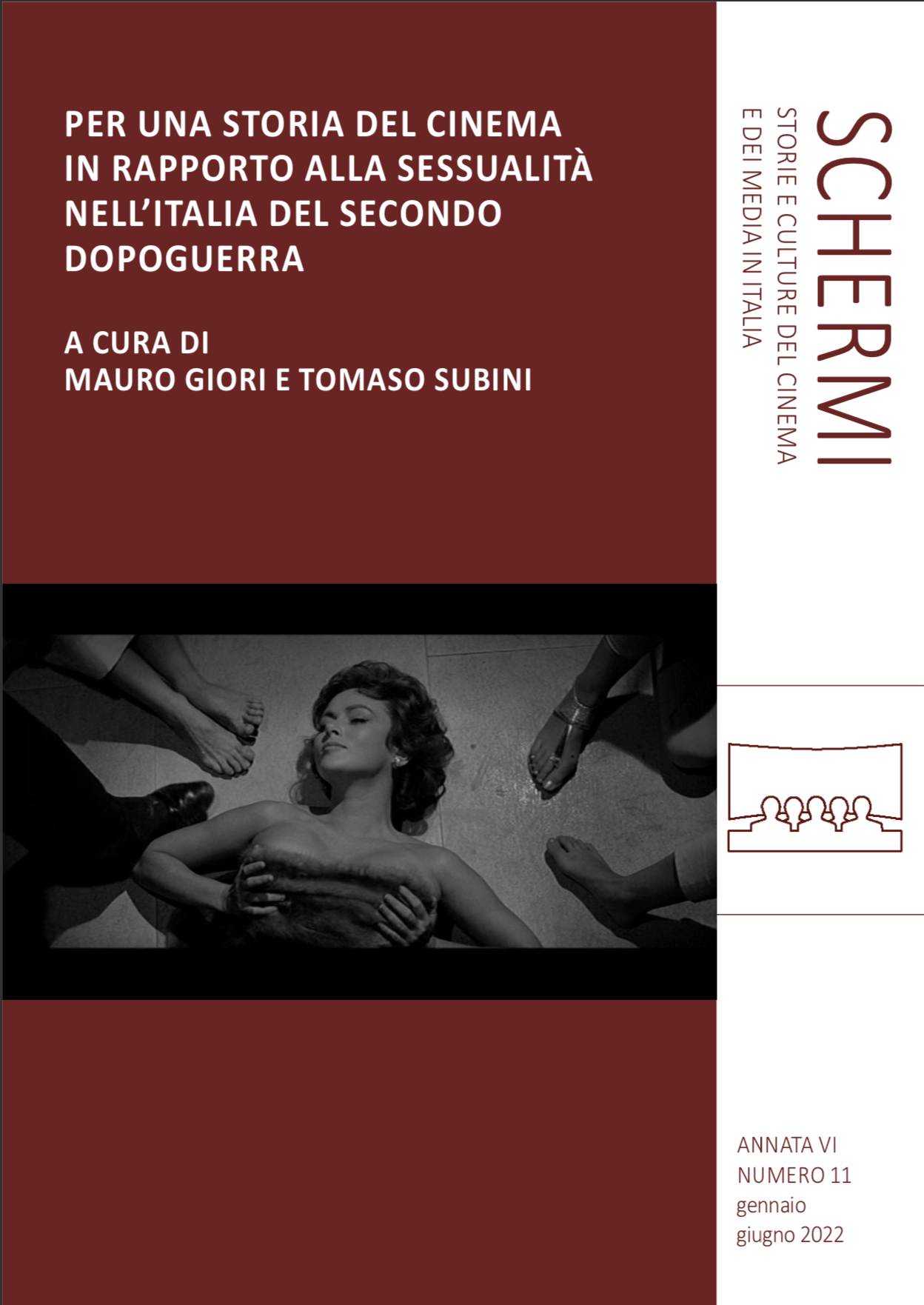Educare alla purezza: modelli pedagogici e politica cinematografica nel cattolicesimo italiano
DOI:
https://doi.org/10.54103/2532-2486/17414Parole chiave:
Moralism, Sexuality, Catholicism, Pedagogical modelsAbstract
Between the late nineteenth century and the World War I, several factors pushed secular and Catholic educational agencies to theorize pedagogical lines specifically aimed at governing individual sexuality. In the Catholic sphere, the pedagogical proposal hinged on an almost complete, even terminological, removal of sex and sexuality: that dimension of human life was veiled and compressed within a bipolar linguistic horizon: at one extreme “purity”, at the other “instincts”, “passions” and “senses”. The construction phase of this pedagogical model – which in its various transformations was central at least until the 1960s – coincided in practice with the first diffusion of cinema, going on to profoundly influence the Catholic approach to the new medium: in the atlas of Catholic pedagogy, cinema was immediately catalogued among the most resolute opponents of the “angelic virtue” of “purity”. This contribution intends to propose a long-term analysis aimed at highlighting the evolution of the relationship between this pedagogical model and film policy in Catholicism, identifying the links between this relationship and the progressive sexualization of Italian cinema.
Downloads
Dowloads
Pubblicato
Come citare
Fascicolo
Sezione
Licenza
Gli autori che pubblicano su questa rivista accettano le seguenti condizioni:
- Gli autori mantengono i diritti sulla loro opera e cedono alla rivista il diritto di prima pubblicazione dell'opera, contemporaneamente licenziata sotto una Licenza Creative Commons - Attribuzione - Condividi allo stesso modo- che permette ad altri di condividere l'opera indicando la paternità intellettuale e la prima pubblicazione su questa rivista.
- Gli autori possono aderire ad altri accordi di licenza non esclusiva per la distribuzione della versione dell'opera pubblicata (es. depositarla in un archivio istituzionale o pubblicarla in una monografia), a patto di indicare che la prima pubblicazione è avvenuta su questa rivista.
- Gli autori possono diffondere la loro opera online (es. in repository istituzionali o nel loro sito web) prima e durante il processo di submission, poichè può portare a scambi produttivi e aumentare le citazioni dell'opera pubblicata (Vedi The Effect of Open Access).





